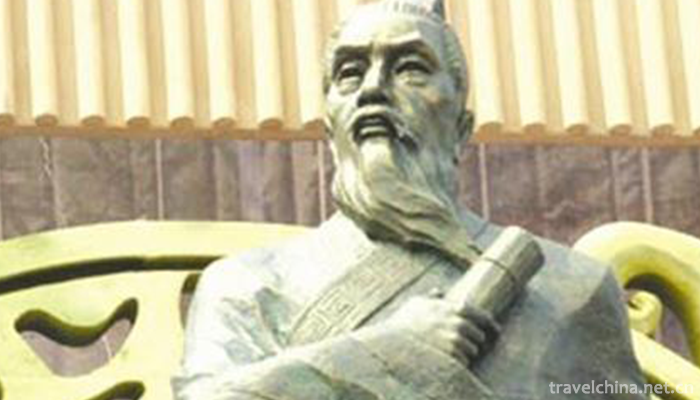Legend of Yin Jifu
The "Yin Jifu Legend" which was listed as the first batch of intangible cultural heritage in Hubei Province, made a sensation forum about "Chinese poetry ancestor, Taishi Yin Jifu of the Western Zhou Dynasty and related legends and stories of the Book of Songs", which attracted great attention of Chinese and Japanese experts at the meeting. They believed that the "Yin Jifu Legend" was extensive and profound and was a precious intangible cultural heritage.
Summary
The Book of Songs is the first of the "Four Books and Five Classics" in China, which can be called the classic of Chinese culture. For thousands of years, people have been pursuing the collector and compiler of the Book of Songs. He was the ancestor of Chinese poetry and assisted King Xuan of Zhou more than 2500 years ago. He was praised as "Wenwu Jifu, Wanbang is constitutional" Taishi Yin Jifu of the Western Zhou Dynasty. Where is Yin Jifu? After years of investigation by the folk literary and Artist Association of Hubei Province, Shiyan Society of Civil Customs and Fangxian Culture, a large number of data show that Yin Jifu is a Fangling native of Hubei Province, that is, a native of Fangxian County of Hubei Province.
status
According to Yuan Zhenghong, a policy researcher at Zhengxian level and President of Shiyan Civil Folklore Society since 1982, after more than 20 years of collection and consolidation, Yin Jifu is from Fangling, Hubei Province.
First, there are records in local chronicles and related books: according to the records of Yunyang Fu Zhi, Guangyu Ji, Ming Tongzhi, Wanli Yuntai Zhi and Fangxian Zhi, etc.:"Yin Jifu, Fangling people eat and gather in Fang, the poet Fu"June", Qingfeng Mountain of the burial room" and so on.
Second, there are still cultural relics such as Yin Jifu's sacrificial temples, tablets, tombs and historical records of Yin Jifu's temples, ancestral temples and houses in Fangxian County.
Third, there are many folk tales and legends of Yin Jifu in Fangxian County. Fourthly, Yin Jifu's descendants live in Fangxian County, Guanshan Town and Yanchihe Township of Danjiangkou City, where Yin Jifu is widely praised. Fifth, the legend of Yin Jifu's folk songs about collecting the classics of poetry by Zhou Taishi and the folk songs related to the classics are still being sung in the mountains of Qianlifang County. The legend of Yin Jifu has been listed as the first list of intangible cultural heritages in Hubei Province. In May 2007, it has been declared to be evaluated as the list of intangible cultural heritages at the national level in China.
Importance
Fu Guangdian's paper presented at the Sino-Japanese Forum on the Protection of Yinzhou's Non-Heritage Sites is "Localization and Globalization: On the Double Realization of the Protection of Non-material Cultural Heritage". In his speech, Fu Guangdian said that the concept of "non-material culture" may have no problems in theory, but in practice it is obvious. Some kind of deficiency. Any culture has both material and non-material sides.
These two sides can not be separated and dismembered, let alone be mistaken for "two sides" as "two kinds". This requires us to pay attention to the dual realization of intangible cultural heritage protection in the protection of intangible cultural heritage, that is, to clarify the rationality and necessity of localization, the rationality and inevitability of the evolution of globalization in the theoretical framework of intangible cultural heritage protection, is the premise of the protected object with ethnological meaning. In the sense of justice and anthropology, the general principle of protection should be the dual realization of national and world significance.
However, in practice, because we emphasize the non-material aspect of cultural heritage, we often fall into the puzzlement of a judgment: seemingly non-material, but only protect the non-material aspect, while the material side is not protected, there will be a "skin does not exist, Mao will be attached". For example, when we excavate and protect Fangling culture, we encounter such problems.
The culture of the Book of Songs in Fangling Culture is undoubtedly the category of non-material culture. But when it comes to how the culture of the Book of Songs came into being and how it was inherited, it involves one aspect of its material culture. For example, Yin Jifu, the principal figure in the early stage of the formation of the Book of Songs culture, was a native of Fangxian County. Today there are many legends and stories related to the Book of Songs in Fangxian County. There are material and cultural heritages related to Yin Jifu, such as Tianguan Tomb and Baotang Temple.
If we abandon the character of Yin Jifu, his legends and stories, and the material and Cultural Heritage related to Yin Jifu, it is self-evident that the final result of protecting the cultural heritage of the Book of Songs is self-evident. So, at least in practice, we can not be confined to concepts, dismembering cultural heritage, taking one side and abandoning the other. Consequently, the protection of cultural heritage is not only a theoretical issue, but also a practical one. We should not be ambiguous in theory and biased in practice. If no problems arise in any practice, the correctness of theory and the accuracy of concept will always be the first.
Therefore, for the legends and stories related to Yin Jifu and the Book of Songs, Fangxian County of Hubei Province not only expects to declare and list the intangible cultural heritage at the national level in China, but also pays attention to the double realization of the protection of this cultural heritage.

0 Questions
Ask a Question
Your email address will not be published.